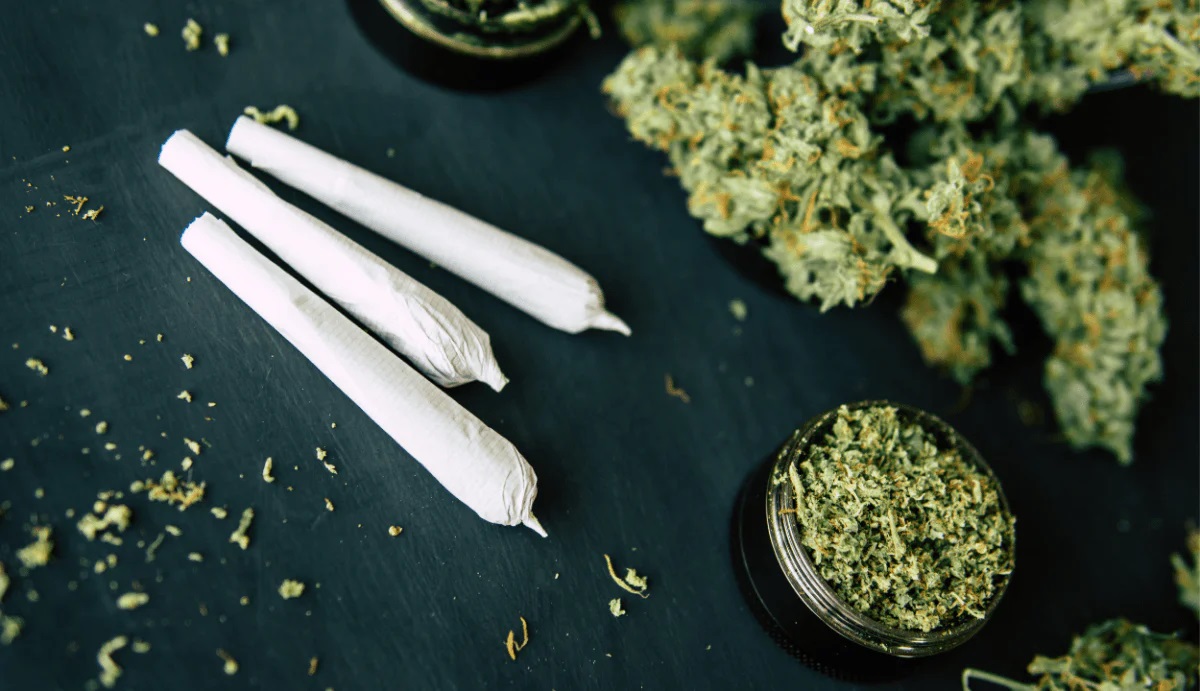Delta-8 THC, an isomer of Delta-9 THC, shares the same molecular formula but differs in its chemical structure, leading to distinct effects and characteristics. While Delta-9 THC is prevalent in most cannabis strains, Delta-8 THC naturally occurs in much lower concentrations. Obtaining Delta-8 flower involves a process called isomerization, which converts CBD (cannabidiol) from hemp into Delta-8 THC through a series of chemical reactions. The resulting Delta-8 flower is then combined with extracted Delta-8 distillate, either infused or coated, offering consumers a unique product experience.
Delta-8 experience
Delta-8 flower is often praised for its gentler, more calming high in comparison to Delta-9 THC. Users commonly describe its psychoactive effects as smoother and less overwhelming, making it an attractive choice for those preferring a relaxed experience. While individual reactions may vary, many users note feelings of euphoria, enhanced focus, and relief from stress and anxiety when using Delta-8 flower. However, it’s essential to acknowledge that research on the long-term effects of Delta-8 THC is still in its early stages, underscoring the necessity for further investigation to grasp its full range of potential benefits.
Future of delta-8 flower
As the cannabis industry continues to evolve, the role of Delta-8 flower is likely to remain a subject of intense interest and debate. While some view it as a legal alternative to traditional cannabis, others are concerned about the potential risks and lack of regulation surrounding its production and distribution. With the rise in demand, there have been reports of substandard or contaminated Delta-8 products entering the market, highlighting the need for robust testing and quality control measures. The legal ambiguity surrounding Delta-8 products has raised concerns among lawmakers and regulatory bodies. As more research on Delta-8 THC emerges, the legal landscape may shift, potentially leading to tighter regulations or even outright bans in certain jurisdictions.
Medical realm
One area where the Delta-8 flower could make a significant impact is in the field of medicine. Preliminary studies have indicated that Delta-8 THC may possess therapeutic properties similar to those of Delta-9 THC but with potentially fewer adverse effects. This has piqued the interest of researchers exploring alternative treatment options for conditions such as chronic pain, anxiety, and nausea. While more extensive clinical trials are necessary, the potential medical applications of Delta-8 flower could revolutionize the way we approach certain conditions, offering a new avenue for relief and treatment.
Culinary landscape
The culinary world has embraced the versatility of cannabis, with chefs and food enthusiasts experimenting with infusing various dishes and beverages with cannabinoids. Delta-8 flower presents an intriguing opportunity in this realm, as its milder effects could make it a more approachable option for those seeking to incorporate cannabis into their culinary experiences. Imagine infusing Delta-8 flower into baked goods, sauces, or even cocktails, allowing consumers to explore new flavors and sensations without the overwhelming potency associated with traditional cannabis strains.
Challenges ahead
While the potential applications of delta 8 flowerare exciting, it’s crucial to acknowledge the challenges that lie ahead. The most significant hurdle is the lack of comprehensive research and regulation surrounding this emerging cannabinoid. As Delta-8 products continue to gain popularity, it’s essential to establish robust quality control measures and standardized testing protocols to ensure consumer safety. Navigating the complex legal landscape surrounding Delta-8 will be an ongoing challenge, as different jurisdictions grapple with how to regulate this novel compound.




